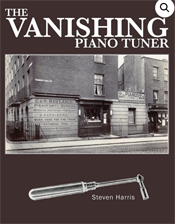Lessons can be taken from the age of six (beginning of First Class), and the child beginner will start with an attractive colourful book (John Thomson’s Teaching Little Fingers to Play) which will have them reading music notes and playing with both hands after two or three lessons. This book takes on average a year and a half to complete during which time there are no scales or technical exercises to practise. Thereafter the young students progress to the Royal Irish Academy of Music Elementary, Preliminary and Primary Exam books. Alternatively they can merely continue playing for enjoyment without undergoing any exams.
Learn to Play the Piano Make Music
Piano Keyboard lessons Ballsbridge Dublin by Pembroke Piano School.

UK Piano Page


